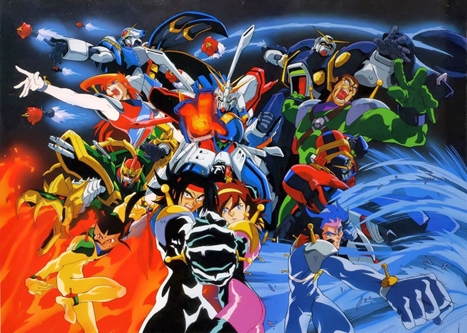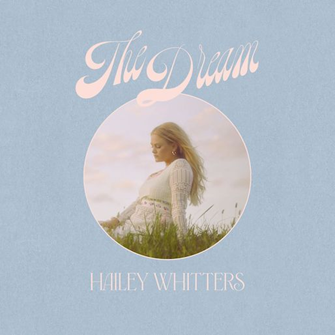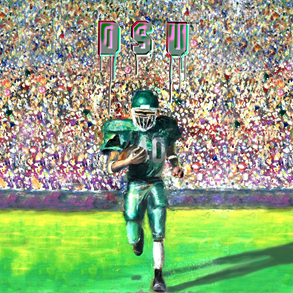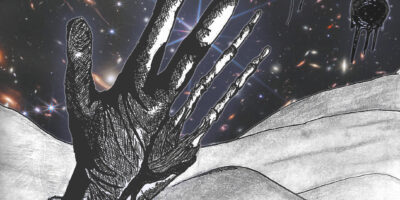It’s no secret we’re living in trying times. Here’s what’s helping the Merry-Go-Round staff stay sane this week.

MOBILE FIGHTER G GUNDAM
If you’re looking for comfort programming during These Trying Times a good place to start would be shows that you enjoyed or remembered as a kid. It’s always interesting to look at things you enjoyed as a small, dumb baby and see how they stack up now that you’re a large, dumb baby with a slightly higher sense of media literacy. This wasn’t exactly how I stumbled back upon the anime series MOBILE FIGHTER G GUNDAM, but it was definitely something I kept in mind during my second viewing.
My initial memories of the Gundam series are very hazy in terms of details, characters, and plot. According to my stream-of-consciousness that is my memory as 10-year-old: “BIG ROBOT BIG GUN LASER SPACE BATTLES ANIME CHARACTERS GASPING,” which, now that I’m older and wiser, isn’t that far off-base. That description lacks the musings on the horrors of war and what it means to take a life that most Gundam series focus on, but it pretty much gets the point across. If you don’t remember, most of the Gundam series focuses on the struggle between an Earth Federation that has sent colonists out into space, and members of a colonist faction often referred to as Zeon or Neo-Zeon that not only want their independence, but also to crush the forces of Earth. Most of the Gundam series focuses on that.
MOBILE FIGHTER G GUNDAMN was a departure from the series in that it took place in a completely new timeline, with characters that had nothing to do with previous iterations of the series. Instead of full-scale wars for independence, the space colonists of each country appoint a champion to represent them in a Gundam fighting tournament. Each fighter pilots a special Gundam representative of their country and fights in sanctioned Earth-based fights until there is one Gundam left, and that country then rules over the rest of the colonies and Earth until the next tournament.
You might have picked up on the concept of Gundams, giant humanoid fighting robots, representative of various countries. This is where I encourage you to watch a few episodes of MOBILE FIGHTER G GUNDAM if not just for a scene in one of the earlier episodes where a Gundam representing America puts on robot boxing gloves and transforms to reveal robot six-pack abs. The pilot is a champion boxer from New York, you see. An American known as Chibodee Crockett, a classic American name! From America. And so Chibodee’s Gundam obviously also has to be a boxer. Later episodes feature a French Gundam that wears a Napoleonic hat and cape. Guess what the champion of Neo-Canada pilots? The Lumber Gundam, of course.
I dare you to guess what the Gundam for Holland looks like. If you guessed a windmill, you’re right. This thing actually takes the hero of the series, Domon Kasshu, by surprise by first appearing as an actual windmill. But once this bad boy, known as the Hurricane Gundam, transforms, this propellor-chested menace is coming for you, champ.
The Gundam for Neo-Mexico is called the Tequila Gundam and I’m still not sure if depicting it is technically a hate crime. The only female Gundam pilot is Allenbee Beardsley for Neo-Sweden, and the appropriately-named Nobel Gundam looks like, well, a Japanese schoolgirl. It’s got robot high-heels. And when the coaches for Team Neo-Sweden push a button, the pilot and Gundam fly into a murderous rage.
The rest of the series is full of the camp and bizarre anime happenings that you’d expect from late ‘80s anime. It’s got transformation sequences where the pilots are covered head to toe in a special latex bodysuit, it’s got “you’re my childhood friend and there’s no way we’ll develop a romance” chemistry between Domon and his mechanic, Rain, and if you watch it in the original Japanese dubbing (I will not escalate the subs v. dubs tension) there’s a lot of questionable uses of English. It’s an amazing revisit, especially in a post-quality, post-CATS (2019) world. [Steven Porfiri]

“Red Wine & Blue” by Hailey Whitters
I cannot stop listening to “Red Wine & Blue,” an absolute gem sequenced near the top of country crooner Hailey Whitters’ breakthrough country album THE DREAM. The simplicity of the whole thing I marvel at with each listen. It’s a slow-burn ballad with perfect flourishes of guitar soloing and choruses that grow with each listen, but the waltzing sway allows Whitters to deliver an instantly striking vocal performance. Yet it’s that chorus that has me constantly mesmerized—how on Earth has no one ever written a country ballad with a chorus that simply concludes “Getting drunk in the afternoon / Red wine and blue.” It was so instantly ear-turning I had to look it up to make sure it wasn’t a cover of sorts, but no, Whitters just figured out how to write the most economic and brilliant country chorus in ages. The whole album is great (single “Heartland” is another one worth playlisting), but “Red Wine & Blue” is a piece of songwriting that I’ve been ruminating on for most of quarantine. [CJ Simonson]

“Soaker” by Alex G
Sometimes, dear reader, it grows tiresome putting on a happy face. This series at large has been dedicated to combing through our reservoirs of serotonin in the midst of an unprecedented pandemic, detailing what’s kept a smile on our faces as we face the next day, which looks an awful lot like the day before it, which looks an awful lot like the day before that one. But coping comes in many forms, and this past week, I’ve really wanted to wallow in it, to look the Devil in the eyes and kiss him on the mouth. Concurrently, I also did an Alex G relisten after seeing him post about doing a concert on Instagram Live. As such, it was the perfect time for “Soaker” to find its way back into my crosshairs.
Even in a career long heralded for the penchant of churning out short, earworm melodies that demand smashing that “repeat” button, “Soaker” proudly stands out at the top of the pack. A ruthlessly economical 100 seconds, even from the jump the lo-fi, slightly obfuscated mixing envelops us in deep, profound melancholy, an acoustic guitar nearly struggling to chug out a chord progression that sounds like it was recorded with a vintage tape deck somewhere deep in the backwoods, almost comparable to ONE FOOT IN THE GRAVE-era Beck. Giannascoli’s vocals don’t waste any time filtering in, a mournful missive of “All I wanna do is get a little bit closer to you…” panning across our ears, a sentiment relatable to anyone in these quarantined times. In typical Alex G fashion, the lyrics are short, pointed, and vaguely cryptic, with a repetition of “… but you, you’re like glue / I’m like water and you’re like glue / And all I ever do is soak through you” all that follows. However, these lyrics and the track at large match the sense of vague, all-encompassing ennui we’re all currently experiencing, the particular melodic downturn Alex G employs during the third time he says “you’re like glue” quietly breaking my heart into a million little pieces every time.
In addition, there’s just generally an understated genius to the lyrics with its imagery of water and glue. It seems as if Giannascoli is positing himself as the transient one, perpetually slipping through and by someone who’s more stalwart in themselves or their affection, which is a fairly unique position for the “protagonist” of a heartbreak song to take. Since he mentions that all he wants is to get closer to whoever he’s soaking through, it adds a sense of self-reflection, an acknowledgment of his own flaws that keeps him at arm’s length. And yet, the concept of “soaking through” is still an intimate one, a deep and almost debilitating connection that suggests a full knowing of someone, changing the shape or trajectory of their life forever before evaporating away. Perhaps Giannascoli is dreaming of a way to more comfortably cohabitate, maintaining a relationship without the aftermath of such an action.
Anyways, I listened to it over 200 times this past week and it made me sad, but in such a way that gives me some small comfort that other people out there are feeling the same way. [Thomas Seraydarian]
















Comments